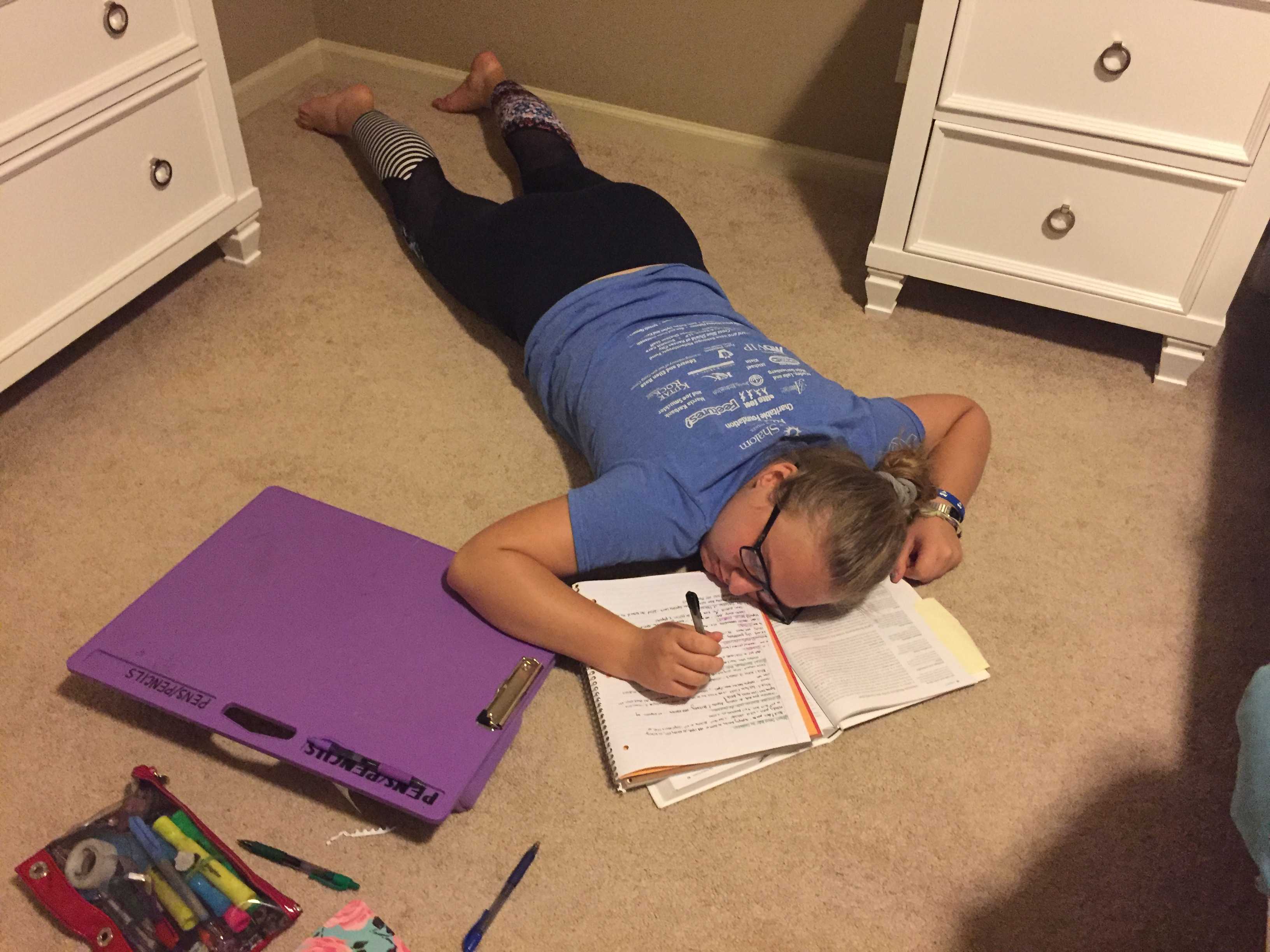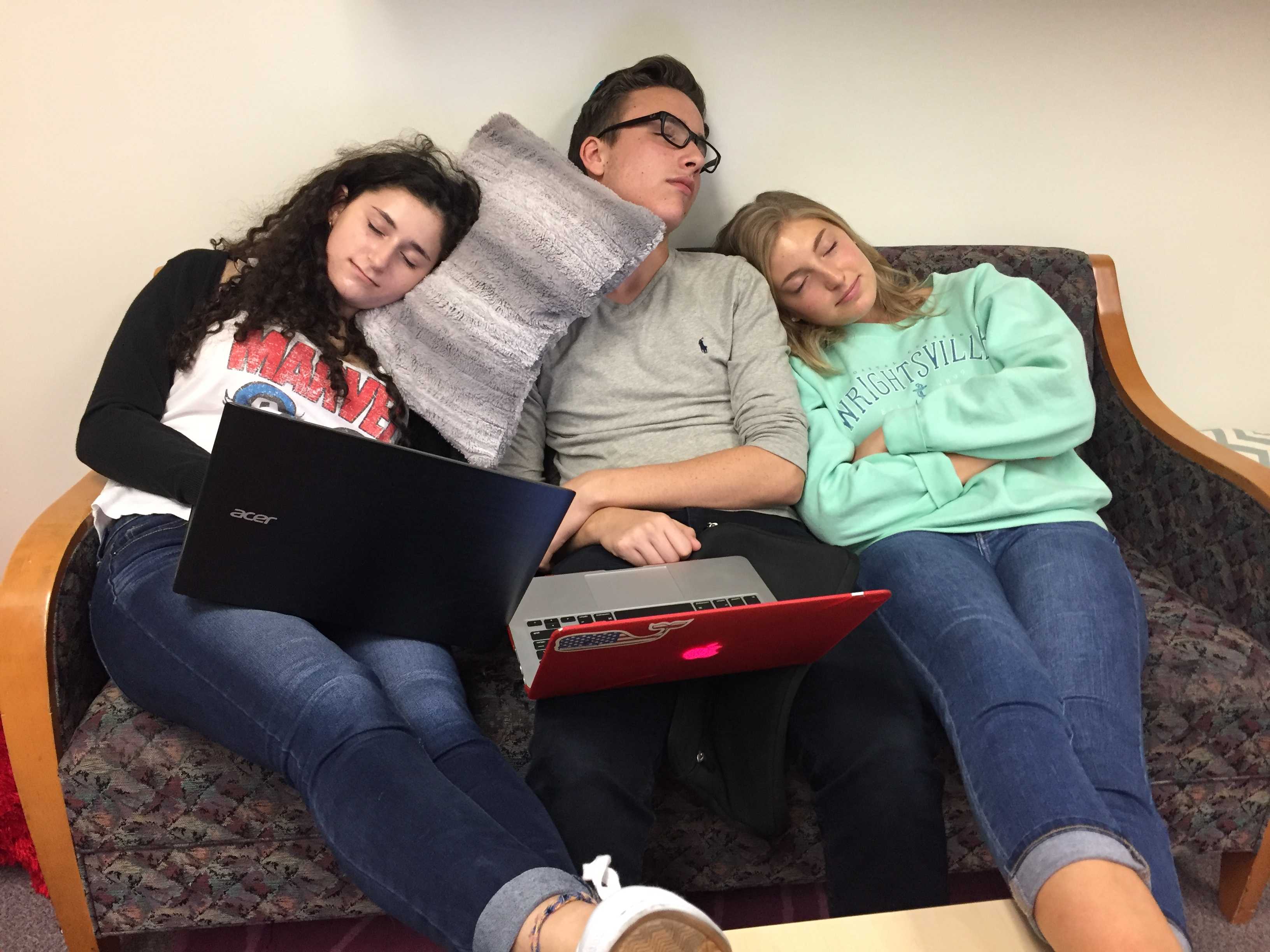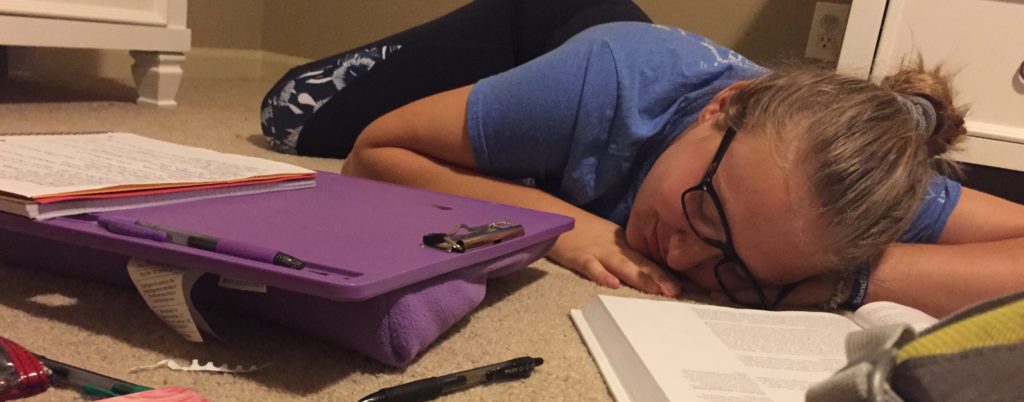Sleep is fuel for the brain. When the body is lacking in sleep, the brain is deprived of the energy it needs to get through the day. According to the National Sleep Foundation, teenagers between the ages of 14 and 17 should get 8-10 hours of sleep every night, and young adults between the ages of 18-25 should get 7-9 hours of sleep. However, sometimes school can interfere with this.
Important body functions and brain activity take place during sleep, which is why it is crucial to get sufficient rest each night. “A night of uninterrupted sleep leave[s] bodies and minds rejuvenated for the next day,” explains the National Sleep Foundation. “If sleep is cut short, the body doesn’t have time to complete all of the phases needed for muscle repair, memory consolidation and release of hormones regulating growth and appetite.” Sleep deprivation can cause irritability, poor work at school, and even falling asleep at inopportune times. It can be extremely difficult to get through a school day while in a constant state of sleepiness.
A survey taken by the National Center for Education found that most High Schools begin around 8:00 am. Their end times however, differ. Sometimes the body just needs an extra hour or two of recuperating. To achieve this, schools would need to adjust their start times to be slightly later, but would that actually affect the way students work during the day in a positive way?

Dr. Jessica Kyanka, lower and middle school principal at Hyman Brand Hebrew Academy (HBHA) found that “sleep patterns change drastically, combined with extra curriculars and homework that students are not falling asleep as quickly and when they should; so early school start times are also contributing to lack of sleep for growing young adults.”
It is true that most teenagers go to sleep at night much later than they should, but “between after-school extracurricular activities, homework, eating dinner, and having a little time to unwind, I know it can be difficult for some students to be able to go to bed much earlier than that,” Micah Margolies, math and English teacher at HBHA explains.
Aside from the fact that teenagers go to bed later than they should, lack of sleep can make for a strenuous day. “Even just pushing the time off to around an hour later would make a huge difference in a student’s alertness, participation, and level of understanding of the material.” Senior Gabrielle Abrams notes. “Having a later time not everyday but some mornings would be awesome!”

Even though this potential change could be beneficial to both students and teachers, there are some downsides. Tamara Schuster, Director of Admissions at HBHA says that “delaying the start of the school day would make for a later dismissal time and less afternoon/evening for the other things teachers do in their non-work hours.” While some families have completely free evenings all week, others are fully booked from dawn to dusk.
Another issue is that students and teachers “would essentially have the same schedule, just on an hour-long delay from before,” remarks Margolies. “Do we shorten each class period by a few minutes? Make the school year longer to make up for the fact that each individual day is shorter? Eliminate a period entirely? Each option has negative consequences, and there is no easy solution,” Margolies adds. Another possible downside is that if there had to be a later endtime to the school day, it would “conflict with sports practices after school,” says Abrams.
On one hand, students and teachers would feel more awake during the school day and be more aware of their surroundings. On the other hand, they would have to compromise their extracurriculars after school. There are no simple answers to this topic; “pros and cons go both ways,” Kyanka notes. A later start time could affect students and teachers positively during the school day, but maybe not after or before.















































































